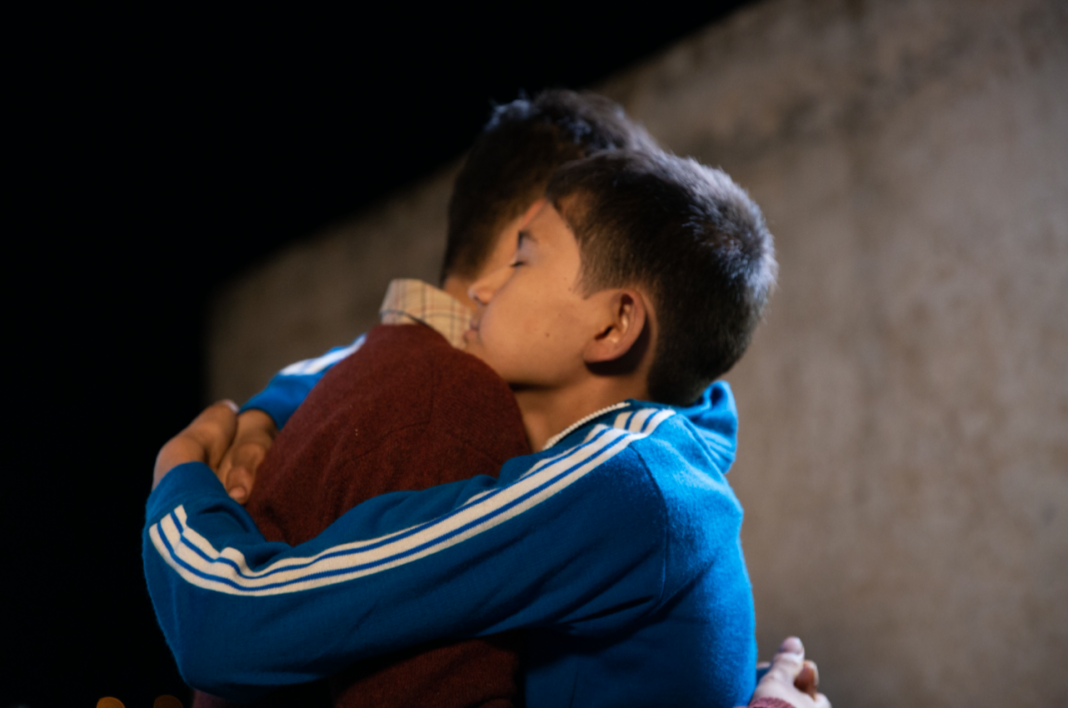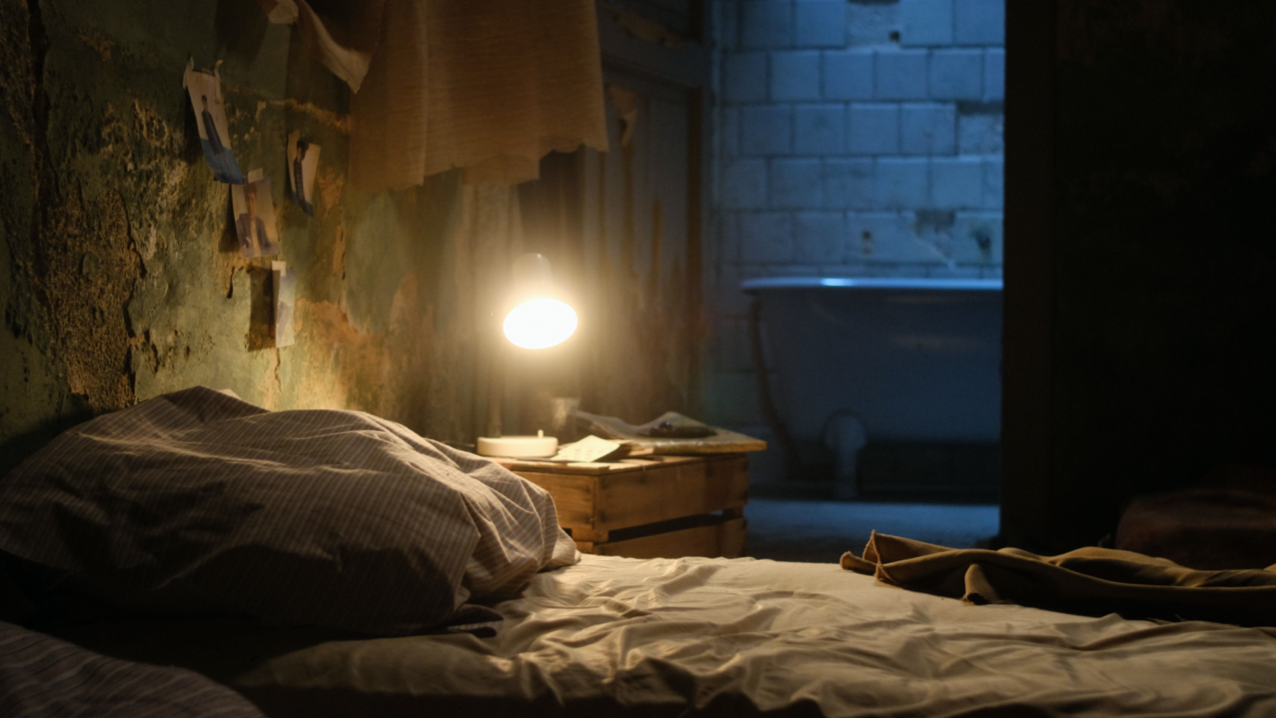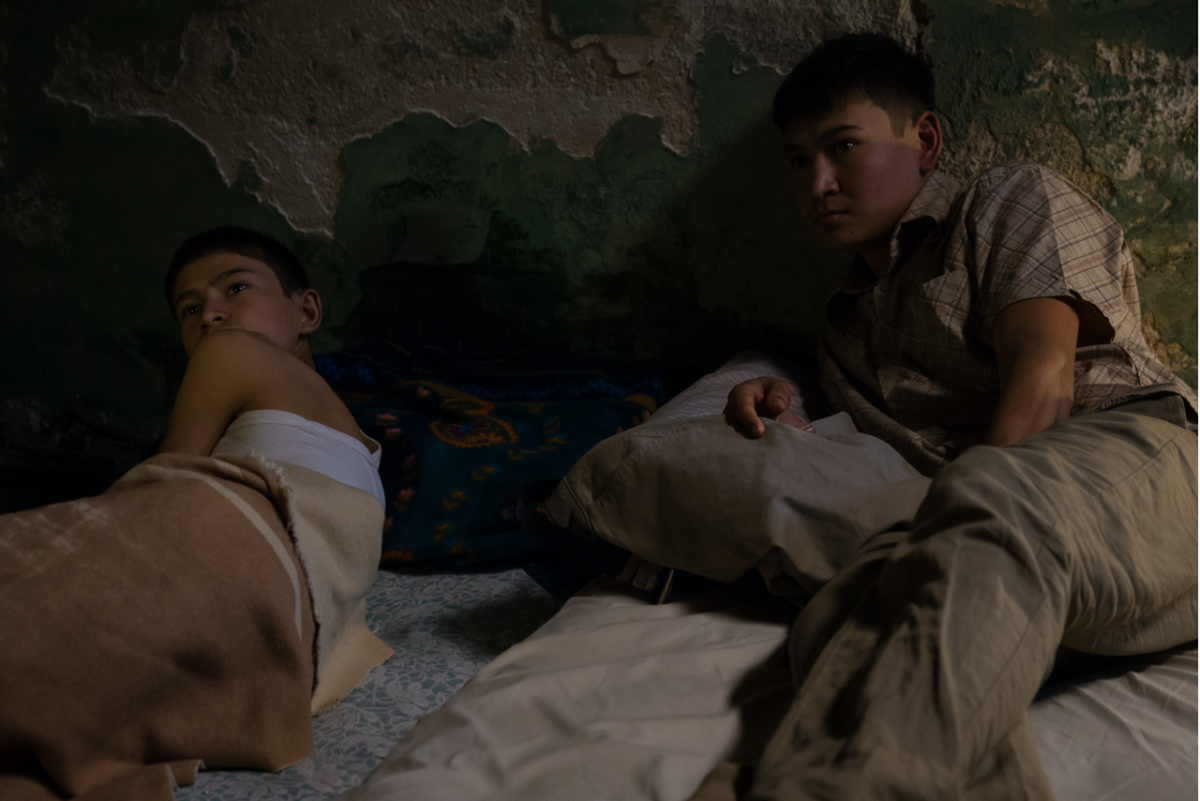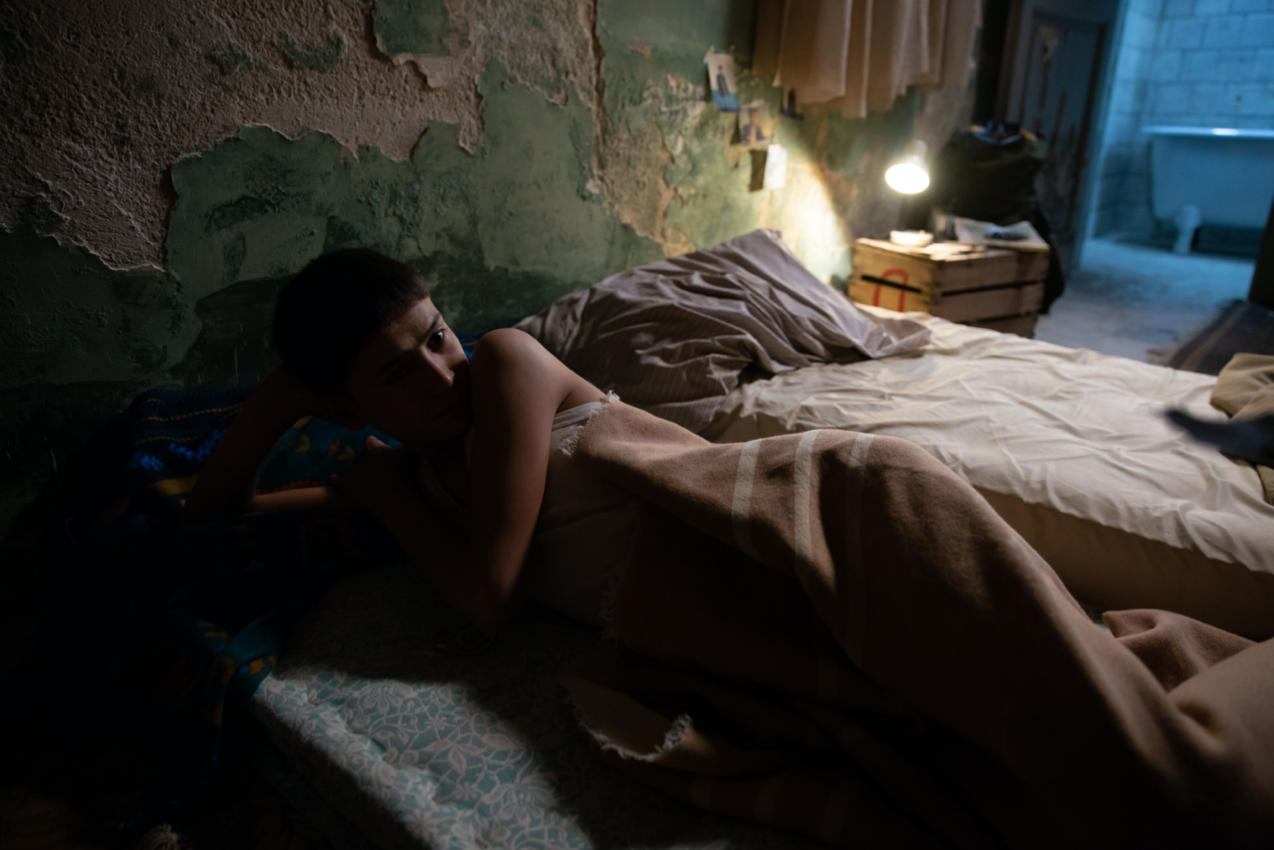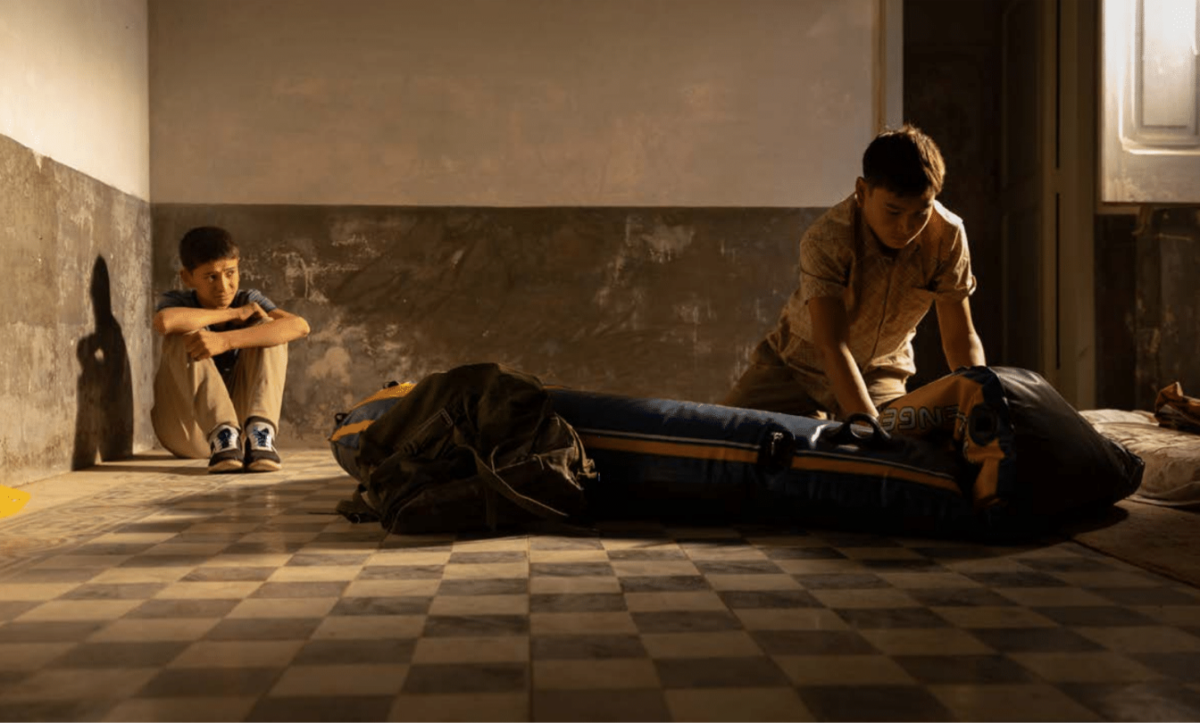The bond of two immigrant brothers struggling to survive is tested to the fore in Beppe Tufarulo’s new acclaimed short BARADAR (BROTHER)
Film And TV Now spoke with the film-maker about his work.
FILM AND TV NOW: We understand the short is based on the novel STANOTTE GUARDIAMO LE STELLE (LET’S LOOK AT THE STARS TONIGHT). Tell us about the source material and what were the key changes you made when adapting it into the short film BARADAR?
BEPPE TUFARULO: The book is about the long and perilous journey of two brothers, Ali and Mohammed, from Kabul, after a bomb destroyed their home and killed their parents, to Turkey, at the gates of Europe.
It took them 3 long years and in between they experienced horrible moments, including a detention camp. Then Mohammed, the older brother, decided to cross the sea on a dinghy to reach Greece, and to do it by himself because it was too dangerous.
His goal was to reach Greece, make money and find a way to bring his brother along. But he died in the crossing and Alì was left alone in Istanbul. The book goes on to portrait the rest of Ali’s journey, until he finally made it to Europe.
It’s an incredible story, but in my opinion a short film has to focus on a limited segment of events, and Alì’s journey was too broad and complex to be told in such a tight timeframe. So, I decided to focus on a specific moment, the last days of the two brothers together. I wanted to show the strength and beauty of their relationship.
FTVN: What is the significance of the title BARADAR?
BT: Baradar means “brother” in Dari, the Afghan dialect that Mohammed and Alì speak.
FTVN: The film highlights the plight of refugee children and the bonds they have with each other during their exodus to a better life. Do you feel the film can make an impact on human rights and political organisations to make a better case for their welfare?
BT: I would love for this film to make an impact, a difference on how the refugees are perceived and treated, once they reach our shores.
It would be a great achievement for me and such an honour. The refugee crisis is more often than not perceived as something distant from us, pertaining to people that are not like us, that we don’t have anything to do with. Almost as if they’re from a different planet.
This is why I found the story of Alì so poignant and strong: because if you take out the ‘refugee’ element from the equation, Alì and Mohammed are just two brothers supporting each other. Playing in the streets, cooking together, laughing together. Yet, they’re living a unique situation, not so common to Western kids their age.
They’re far away from their home, they’ve lost both their parents in a bomb attack, they’ve travelled throughout the Middle East on a very perilous journey to reach Istanbul, Turkey in the hope of getting across the Mediterranean and reach Europe. Each one of them doesn’t want to lose the other, although they know that parting ways is their only chance to survival. And they’re just teens!
FTVN:Tell us about your cast.
BT: First of all, I was looking for two teenage Afghan brothers living in Italy, which in itself is very limiting.
I contacted UNHCR and many associations that deal with political asylum until I came into contact with Binario 15, a voluntary association that acts for the protection and legal support of migrants, in particular refugees fleeing Afghanistan who, over the years, have passed from platform 15 at the Ostiense Train Station in Rome.
They introduced me to Danosh and Nawid Sharifi, two brothers who had just arrived to Italy to reunite with their older brother. It was an exciting but also challenging meeting because cultural and linguistic differences made interaction difficult at first.
With the help of the real Ali Ehsani and a cultural intermediary, however, I managed to gain their trust and work with them for a few weeks before going on set.
FTVN: Tell us about your production team.
BT: The short is a co-production between Tapelessfilm (of which I am a founding partner) and Art of Panic. As for the crew, I worked with screenwriter Francesco Casolo, who also worked on Ali’s books, and with longtime collaborators such as DoP Francesco Di Pierro and music composer Daniele Carmosino.
FTVN: Are there plans to show the film to schools and universities as a way of revealing the issues about illegal immigrants on the Mediterranean and Turkish coasts?
BT: The film has already been shown in schools across Italy, we constantly get requests through our Facebook page or through our distributor, Premiere Films, from teachers that want to show the film in the context of the refugee and immigration crisis.
FTVN: Where did you shoot and for how long?
BT: The story is set in Turkey but shooting there was out of the question, not only for a budget issue but also for the involvement of the two actors who had just arrived to Italy to reunite with their older brother and couldn’t possibly travel abroad.
Together with the production we immediately thought that Apulia, southern Italy, could be the right place because it has a great variety of landscapes and is very similar to Turkey, both in terms of coastline and towns architecture, with narrow streets, full of dust/sand. The excellent art direction did the rest, in order to evoke the atmosphere of the story.
FTVN: How did you raise finance?
BT: The financing of the film was a balanced mix of regional funds (Apulia Film Commission is a very efficient regional organisation for funding cinema and audiovisual content), private funds (Blue Sands Foundation), producer’s equity and national tax credit.
FTVN: You kickstarted your career at MTV. How did that experience shape your career and direction as a filmmaker and what were the most important things you learned during your time with them?
BT: The experience at MTV was fundamental because it allowed me to grow professionally, to experiment and to find my own personal point of view to tell a story. It was a real training ground together with people who believed in me.
These were years in which, starting from music, I began to approach the world of documentary and then I kept that gaze also in the future projects that I have developed.
FTVN: You have directed content for Amazon Prime and are reportedly developing your debut feature. How does working with a company like this in this increased influx of streaming content shape your ambitions and vision?
BT: New streaming platforms lead to the research and development of new contents, some of which are of great quality. The opportunity to work with Amazon Prime allowed me to carry out more ambitious projects aimed at an international audience. They are universal projects, worldwide and for a director this means being able to experiment and grow.
FTVN: What issues and themes would you like to explore in the future?
BT: I firmly believe in the strength and humanity of people, and this is what I would like to tell in all my projects. I’m always looking for universal stories, stories of those tragic heroes struggling to get their lives back.
FTVN: How has COVID-19 affected your development and evolution as a filmmaker?
BT: Covid-19 has drastically changed our daily life and our lifestyle. All our habits and the things we took for granted have been questioned. I also talk about the simplest gestures such as a hug to a family member or a friend.
I think that right now people need to look even more for stories in which they identify themselves or to get excited about. As a filmmaker this period pushes me even more to look for these stories and the right point of view to tell them. We all hope to be soon able to enjoy these films in cinemas which are beautiful places that should not be given up.
FTVN: Finally, what are you most proud of about the short?
BT: I firmly believe in the power of the cinematic language and in its educational value. I absolutely wanted to give this film a deeply intimate and human dimension and I really wanted this story, of courage and hope, to excite and raise awareness among the public.
I don’t know if I succeeded but I am proud to have tried it together with all the people who supported this project and those who then selected and awarded the short film at festivals around the world.


